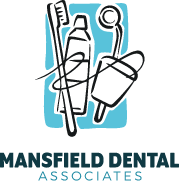Grinding your teeth through the night while you sleep can be a recipe for tooth and jaw pain in the morning. If this is a habitual occurrence, you could face the serious risk of major dental damage, and TMD. TMD, meaning temporomandibular joint disorder, is a problem with the joints of your jaw that causes headaches, facial pains, and difficulties with moving your jaw. The condition can have a legitimate impact on your quality of life. If you grind your teeth with enough force, you can potentially crack a tooth, which will make restorative dental care necessary.
Treatment For Bruxism And TMD From Your Dentist
Your dentist can provide a special mouth guard that ends your habit of grinding your teeth. This custom-made piece will be worn when you sleep, so that you no longer awaken to discomfort. Your dentist can also walk you through techniques that will help you stop placing the pressure on your jaw that leads to TMD. To secure an accurate diagnosis, your dentist will use digital radiography to take advanced images that you and they can review.
What To Do About Physical Damage On Teeth
The degree of damage done by teeth grinding (which is also known as bruxism) will dictate how your dentist treats you. If the harm done has a functional impact, expect to have restorative work done. This could mean having a dental crown placed on a damaged tooth. If your problems are milder, but still unsightly, you may be interested in receiving cosmetic dental work. It is important to ensure that your grinding habit is fully addressed before undergoing cosmetic treatment, as you could damage your new dental work.





Recent Comments